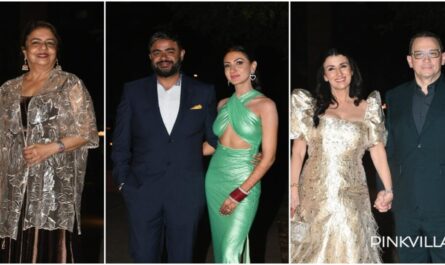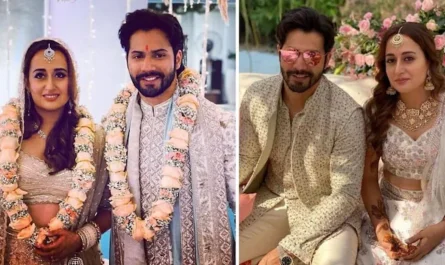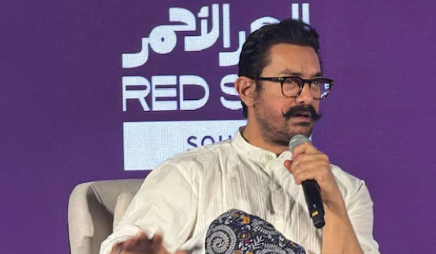Bollywood is no stranger to dramatic casting decisions and long-standing rumors about relationships among its biggest stars. Over the years, the media and fans alike have dissected every detail of personal and professional lives in the industry. A recent episode, however, has once again put the spotlight on both romantic history and casting choices. The controversy centers around the film Veer, in which superstar Salman Khan was seen alongside a newcomer – Zarine Khan – whose striking resemblance to the celebrated actress Katrina Kaif set tongues wagging. This situation not only rekindled memories of a past relationship but also raised questions about artistic decisions and personal sentiments in Bollywood’s ever-dynamic world.
A History Etched in Fame and Friendship
Salman Khan and Katrina Kaif’s relationship dates back to a time when the two were not just co-stars but also lovers. Their romance, which spanned from 2005 until their breakup in 2010, was the talk of the town. Despite the end of their romantic involvement, the duo managed to sustain a professional bond that saw them working together in blockbuster films such as Bharat and the widely popular Tiger franchise. The manner in which they managed to transition from lovers to colleagues has often been described as a testament to their maturity and the pragmatic nature of the Bollywood film fraternity.
In this environment of collaboration and mutual respect, the casting decision in Veer sent shockwaves among fans. The introduction of Zarine Khan – an actress who bore an uncanny resemblance to Katrina – sparked debates over whether Salman Khan’s decision was influenced by a lingering sentiment from his past. Was this casting choice a nod to the memories of his former love, or was it a simple case of an unintentional resemblance?
The Casting Controversy: Unpacking the Look-Alike Conundrum
When Veer was announced, the news that Zarine Khan was set to appear opposite Salman Khan immediately caught the attention of Bollywood enthusiasts. The resemblance between Zarine and Katrina was unmistakable to many observers, which quickly led to a wave of speculation. Some ardent fans posited that Salman Khan might have been subconsciously trying to recapture the charm of his earlier association with Katrina, especially since the pair had shared such memorable on-screen chemistry in the past.
However, as the discussion evolved, it became evident that the situation was more nuanced than a mere case of personal nostalgia. The film industry is known for its uncanny coincidences and instances where an actor’s look-alike is chosen without any underlying motive tied to past relationships. Casting decisions are driven by a complex interplay of factors – ranging from the director’s vision and the narrative needs of the film to the aesthetic appeal that a particular actor brings to the role. In this instance, while the resemblance did not go unnoticed, it remains debatable whether it was a deliberate effort to evoke memories of an old romance.
Katrina Kaif’s Candid Response: A Touch of Grace Amid Rumors
Amid the swirling rumors and heated discussions, Katrina Kaif was asked to comment on the issue in a throwback interview with a popular lifestyle magazine. When queried about whether Salman Khan’s decision was an indication of his lingering attachment or a tribute to her former image, Katrina’s response was refreshingly candid and laced with humor.
She remarked, “Isn’t it flattering? I find it sweet that someone might miss my presence so much that they seek out a similar look.” Katrina went on to add that she had even lent a hand during Zarine Khan’s screen test by assisting with her makeup. This gesture, she noted, was not just a professional courtesy but also a reflection of her belief in supporting emerging talent. By acknowledging Zarine’s potential and referring to her as “a lovely girl,” Katrina underscored her commitment to nurturing new talent, even if it meant confronting comparisons that harked back to her own image.
Yet, in the same conversation, Katrina made it clear that she did not entirely see Zarine as her mirror image. “I don’t really think she looks like me,” she explained. This distinction is important, as it subtly distances her from the narrative that the casting was a mere substitution or a deliberate homage. Instead, her comments suggested that while similarities might exist, they were not so striking as to cause confusion or to serve as a substitute for her own identity in the cinematic landscape.
Media’s Role and the Public’s Appetite for Gossip
Bollywood news has always thrived on the fine line between personal relationships and professional decisions. The public’s fascination with celebrity relationships has led to numerous instances where personal pasts are dragged into current narratives. In this case, the casting of Zarine Khan opened the floodgates of public commentary, with many speculating that the choice was a subconscious move by Salman Khan – one that hinted at missing the presence of his former partner, Katrina Kaif.
Social media platforms quickly became a battleground for opinions. Some fans expressed their support for Salman’s choice by highlighting his longstanding association with Katrina and noting that actors sometimes form attachments to familiar faces even in professional contexts. Others, however, criticized the move, arguing that it was insensitive or could be seen as a clumsy attempt to recreate a magic that once existed between two other people. This divergence in opinions illustrates the dual-edged nature of celebrity gossip: while it can sometimes be light-hearted and entertaining, it also has the potential to oversimplify complex human relationships and artistic decisions.
Beyond the Surface: Artistic Vision Versus Personal History
At its core, the casting decision in Veer is a reminder of how personal history and professional art can intersect in unexpected ways. In the high-stakes world of Bollywood, every decision is scrutinized, and even the slightest resemblance between actors can become a subject of intense debate. It is worth noting that casting directors and filmmakers are constantly navigating a delicate balance. They must consider the visual narrative of the film, the chemistry between the actors, and the broader context of the story being told.
In this light, the inclusion of Zarine Khan can be seen as a calculated move to bring in fresh energy while still tapping into a familiar aesthetic that audiences might appreciate. The resemblance to Katrina, though not an exact duplication, might have served as a subtle nod to an era in Bollywood that many hold dear. Moreover, it highlights the evolving nature of celebrity culture, where past relationships and historical partnerships continue to shape current perceptions, even if indirectly.
The Evolution of Salman Khan’s Public Persona
Adding another layer to this narrative is the evolution of Salman Khan’s image over the years. Once known for a rugged and sometimes unpredictable demeanor, the actor has, over time, exhibited a softer, more media-savvy side. This change in his public persona is evident in the way he handles interactions with the press and his ability to navigate controversies. In one notable exchange, Katrina was even asked whether she believed that her influence had played a role in softening Salman’s once brash approach toward the media.
Katrina’s response was measured and thoughtful. She acknowledged that if Salman had indeed become more approachable and composed over time, it was a positive development for both him and the industry. “If he has mellowed down, that’s wonderful,” she commented. In doing so, she distanced herself from any claims that her personal involvement was responsible for changes in his behavior. Instead, she framed it as a natural evolution – one that perhaps comes with maturity, experience, and the passage of time in a relentlessly dynamic industry.
The Ripple Effect on Bollywood’s Narrative
Casting controversies such as the one involving Zarine Khan are not isolated incidents in Bollywood. They are part of a broader trend where personal histories, rumors, and public perceptions intermingle with the art of filmmaking. Every casting decision is a confluence of various factors: the director’s creative vision, the marketability of the film, the chemistry between actors, and sometimes, even the lingering shadows of past relationships.
For the audience, these decisions offer more than just entertainment; they serve as a window into the complexities of human relationships. Fans are quick to pick up on similarities, whether it be a facial feature or a mannerism, and they often extrapolate these observations into grand narratives about love, loss, and nostalgia. The casting of Zarine Khan in Veer is one such example where a seemingly innocuous decision becomes a canvas on which the public projects its collective memory of a bygone era.
This incident has also sparked discussions about the importance of originality in cinema. While drawing inspiration from past successes is a common practice in any creative field, there is always a fine line between homage and imitation. Filmmakers today are challenged with the task of crafting narratives that resonate with contemporary audiences while remaining respectful to the legacies that have shaped Bollywood’s history. The Veer casting saga, with its mix of personal reminiscence and professional strategy, encapsulates this very challenge.
Embracing New Talent Amid the Legacy of the Past
One of the more uplifting aspects of this narrative is Katrina Kaif’s willingness to support emerging talent. Despite the unavoidable comparisons with her own persona, she remains focused on nurturing new talent in the industry. By extending her guidance during Zarine Khan’s screen test, Katrina demonstrated a commitment to helping the next generation carve out their own niche in a competitive environment.
Her actions speak volumes about the spirit of mentorship that has become increasingly important in Bollywood. Rather than viewing the resemblance as a threat or a challenge to her own identity, she chose to see it as an opportunity to support and empower another actress. In doing so, she underscored the idea that the industry is big enough for multiple talents, and that every actor – regardless of the past they may evoke – has the potential to shine in their own right.
Looking Ahead: What Does This Mean for Bollywood?
The controversy surrounding the casting of Zarine Khan in Veer is emblematic of the broader shifts in Bollywood. In an era where personal histories are often dissected and analyzed alongside professional achievements, every decision is fraught with multiple layers of meaning. While the casting itself may seem like a simple professional choice on the surface, its reverberations extend far beyond the film’s production. It serves as a reminder that Bollywood is an industry steeped in history and tradition, where past glories and old relationships continue to influence the present.
This dynamic interplay between history and modernity is what keeps the industry vibrant and engaging for its global audience. Whether it is the way films are marketed or how casting decisions are interpreted by the public, there is a constant dialogue between what has been and what is emerging on the horizon. The current scenario, involving Salman Khan, Katrina Kaif, and Zarine Khan, is but one chapter in an ongoing story—a narrative that blends the personal with the professional, the nostalgic with the new.
Concluding Thoughts: The Enduring Allure of Bollywood Drama
In conclusion, the saga surrounding Veer and the casting of Zarine Khan offers a fascinating glimpse into the intricate workings of Bollywood. It is a tale of past loves and evolving identities, of mentorship and the inevitable comparisons that arise when legacy meets new talent. Salman Khan’s decision, whether intentional or coincidental, has sparked conversations about memory, attraction, and the ever-changing nature of celebrity culture. At the same time, Katrina Kaif’s measured and supportive response serves as a reminder that the film industry is as much about fostering talent as it is about celebrating personal histories.
As fans continue to debate and dissect the implications of every casting decision, one thing remains clear: Bollywood’s narrative is built on layers of personal experience, professional dedication, and an unyielding commitment to storytelling. The casting controversy may have momentarily stirred old memories and ignited fresh debates, but it also highlights the importance of embracing change while honoring the past. Whether one sees the decision as a sentimental homage or a strategic move, the ultimate outcome is the same—a renewed conversation about what it means to be part of this ever-evolving cinematic world.
With the industry continuously shifting its paradigms and new talent emerging every day, the legacy of Bollywood’s iconic stars continues to inspire and shape the future of cinema. As the story of Veer unfolds and audiences wait eagerly to see how the film is received, one can only hope that the dialogue between the past and the present will foster an environment where creativity and innovation thrive. In this environment, every casting decision, every on-screen pairing, and every whispered rumor contributes to the rich tapestry that is Bollywood—a realm where history and modernity coexist, and where every face, whether familiar or new, has a part to play in the grand narrative of Indian cinema.
Ultimately, this episode serves as a poignant reminder that in Bollywood, personal histories are never truly forgotten, and every decision on screen carries with it echoes of a bygone era. It is in this blend of nostalgia, ambition, and artistic vision that the true magic of Bollywood resides—a magic that continues to captivate audiences across generations and inspire the next wave of filmmakers and actors alike.
As we look forward to more films that challenge the conventional boundaries of storytelling and redefine the meaning of star power, it is important to appreciate the nuanced ways in which personal relationships and professional decisions are interwoven. The story of Salman Khan, Katrina Kaif, and Zarine Khan is just one example among many in an industry where every casting choice is layered with significance, and where the echoes of past loves continue to shape the present. With every new film, the cycle of reinvention and remembrance persists, ensuring that Bollywood remains a vibrant arena for both artistic expression and heartfelt connections.
In the end, whether one views the resemblance as a simple coincidence or as a deliberate nod to history, it is clear that the conversation will continue. The interplay of legacy and innovation in Bollywood promises to offer endless material for discussion, debate, and, ultimately, cinematic brilliance.



